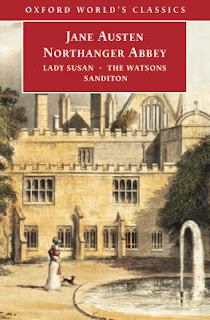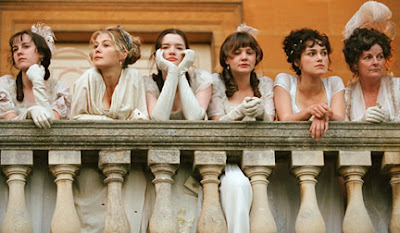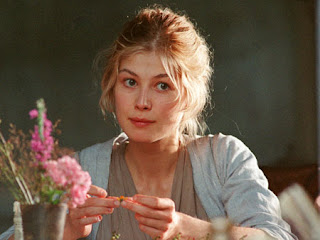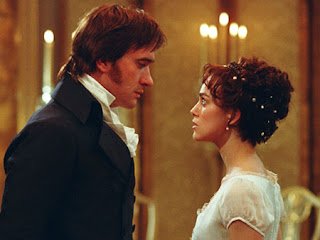“I hope you received my little parcel by J. Bond on Wednesday evening, my dear Cassandra, and that you will be ready to hear from me again on Sunday, for I feel that I must write to you today. […] I want to tell you that I have got my own darling child from London.” – Jane Austen to her sister, Cassandra, Friday, January 29, 1813
My book is Pride and Prejudice, and it is a bit daunting to talk about Jane Austen’s “darling child,” and perhaps the darling child of most of her readers. For what percentage would readily admit that Pride and Prejudice is their favorite of the six novels? And in what context has the opening line, “”It is a truth universally acknowledged, that a single man in possession of a good fortune must be in want of a wife,” not been paraphrased. If any book is part of the English-speaking world’s collective unconscious, Pride and Prejudice is it.
Shall I summarize it for you? Is it possible you don’t know about Elizabeth and Darcy’s prickly early encounters and gradual journey into love? Do you not know that Lydia eloped with George Wickham and that Darcy made him marry her? Haven’t you heard that despite Darcy’s early efforts, his friend Bingley returned to Hertfordshire to marry Jane? If you haven’t read the book, surely you have seen one of the many adaptations.
Pride and Prejudice is the iconic love story wrapped in a delicious comedy of manners. No one handles the English language like Jane Austen, and no one wields a sharper pen.
“My reasons for marrying are, first, that I think it a right thing for every clergyman in easy circumstances (like myself) to set the example of matrimony in his parish. Secondly, that I am convinced it will add very greatly to my happiness; and thirdly — which perhaps I ought to have mentioned earlier, that it is the particular advice and recommendation of the very noble lady whom I have the honour of calling patroness. Twice has she condescended to give me her opinion (unasked too!) on this subject; and it was but the very Saturday night before I left Hunsford — between our pools at quadrille, while Mrs. Jenkinson was arranging Miss de Bourgh’s foot-stool, that she said, ‘Mr. Collins, you must marry. “
In my opinion, no funnier proposal has ever been written.
Contrary to Jane Austen’s satiric “Plan of a Novel,” wherein the angelic heroine and her long-winded father are harried from one European country to another by the anti-hero and a series of importunate lovers, the plan of Pride and Prejudice is practically a perfect paradigm for the modern romance:
1) Haughty, upper-class Hero enters the realm of the less exalted Heroine.
2) Hero and Heroine take an immediate dislike to one another.
3) Friends of Hero successfully detach him from the Heroine, but not before he has had second thoughts about her attractiveness.
4) Hero detaches friend from Heroine’s sister.
5) Hero girds his loins and proposes to Heroine, who still thinks he is an interfering snob and shoots him down.
6) Hero absorbs reproof and goes about reforming himself to be worthy of the woman he once thought it “a punishment” to dance with.
7) Heroine and Hero meet again, heroine has change of heart, but before she can make her feelings known,
8) Heroine’s foolish sister elopes with a scoundrel, later to be rescued (sort of) by Hero. Hero also restores detached suitor to Heroine’s sister.
9) The two meet again, Hero proposes, and they live happily ever after.
 A good writer, can take that outline and deliver a delightful, modern Regency Romance. Some have and, I daresay, more will.
A good writer, can take that outline and deliver a delightful, modern Regency Romance. Some have and, I daresay, more will.
Although I would never classify Jane Austen as a romance writer, there is little doubt that she can write romance. And there is little doubt she has inspired several generations of romance writers. Jane Austen, and particularly Pride and Prejudice, is the reason I began to write Regency Romance. And the reason I continue to do so.
So, is this your favorite Jane Austen novel? Is it because of the romance? The humor? The sheer perfection of it? Is it, as Jane Austen said, tongue in cheek, too “light, bright and sparkling?” Is it the reason you read (or write) in the Regency?















